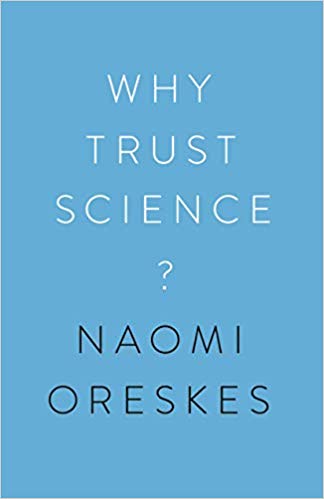Why trust Science? This has become a pertinent question, especially in the current political climate. Science has a role in so many aspects of our lives, from our jobs to our health to our environment. Yet, despite being able to time solar eclipses down to the second, there seems to be more distrust of what scientists tell us than ever before.

Naomi Oreskes is a professor of history and science studies at the University of California, San Diego. In Why Trust Science? she offers a defense that claims the social character of scientific knowledge is its greatest strength and the best reason for trust.
In Oreskes’ view, there is no single scientific method. Rather, the trustworthiness of claims comes from a social process of vetting that produces consensus. Tracing the history and philosophy of science from the late nineteenth century to today, she shows how this process is not perfect (remember cold fusion?), but consensus is a crucial indicator of when a scientific theory is valid and likely to be trustworthy.
This approach does have its critics. One reviewer thinks the key is not consensus at all; Newton’s Theory of Gravity was ultimately proven wrong but was still widely accepted. Still, I think her point is scientific results must be replicated by multiple sources before being believed.
The book also features critical responses by climate experts Ottmar Edenhofer and Martin Kowarsch, political scientist Jon Krosnick, philosopher of science Marc Lange, and science historian Susan Lindee, plus a foreword by political theorist Stephen Macedo.
It’s available on Amazon.com at https://www.amazon.com/Trust-Science-University-Center-Values/dp/069117900X/ref=sr_1_1?
